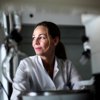Fritextsökning
Artiklar per år
Innehållstyper
-

Rise and Scantox cease conducting animal testing in Stockholm
Access to in vivo toxicology services is significantly decreasing in the Stockholm area as Rise shuts down animal testing and Scantox reorganizes. ”The costs are high, and demand is weak”, says the division manager at Rise to Life Science Sweden.
-

Partial court victory for entrepreneur who lost his company
Swedish life science entrepreneur Mikael Kubista has won the first round against a law firm that he, along with other co-owners, sued for negligent advice in connection with losing his company, Tataa Biocenter.
-

Large study on milk: Risky for women but not for men
The risk of ischemic heart disease (IHD) and acute myocardial infarction (MI) increased for women with milk intake levels higher than 2 glasses per day, while no such association was found in men, according to a new large Swedish study.
-

“Research is always a lot of failures and a few successes”
Gene therapies open up fantastic possibilities, but they are also extremely expensive to produce. Genenova aims to change that and make the treatments accessible to more people. “Our overall ambition is to reduce costs a hundredfold”, says professor Johan Rockberg at KTH Royal Institute of Technology in Stockholm.
-

Investigations against AstraZeneca: ”Chinese interests may be behind them”
Why are there several investigations against AstraZeneca employees in China right now? Life Science Sweden continues to seek answers.
-

Trumps nya FDA-chef varnar för "massiv övermedicinering"
Donald Trump har nominerat kirurgen och författaren Marty Makary till ny chef för den amerikanska läkemedelsmyndigheten FDA, som enligt den tillträdande presidenten har ”förlorat amerikanernas förtroende”.
-

Her company is developing a new tablet form obesity drug
Obesity and diabetes are the primary targets of a new tablet treatment under development by Malmö-based Pila Pharma. The company’s ambition is to take on the billion-selling GLP1 analogues. ‘‘Basically, I expect all the beneficial effects that they have
-

Leo Pharma to cut 200 jobs and reorganize
Danish Leo Pharma cuts down on staff in its global operations. Around 200 positions will be cut, while 50 will be moved to Poland.
-

This years Nobel prize in medicine – “Changed the understanding of how genes are controlled”
This year’s Nobel Prize in Physiology or Medicine goes to the discovery that small RNA molecules, known as microRNAs, control how genes are regulated. Understanding the mechanism has changed our view of human biology and evolution, says KI Professor András Simon.
-

Obesity-drug pioneers win Lasker Award
This year’s Lasker Prize in Clinical Research has been awarded to three researchers for their discoveries in GLP-1-based drugs that, according to the jury, “have revolutionised the treatment of obesity”. Among others, Novo Nordisk’s Lotte Bjerre Knudsen is honoured.
-

“We should avoid surgery if we can”
Since February this year, she has been Scientific Director Life Science at the Karolinska Institutet. Life Science Sweden met Anna Martling for a talk about role models, surgery and Sweden’s strengths and weaknesses in medical research.
-

Danska läkemedelsfonder investerar i talangfabrik
Novo Nordisk Foundation, Lundbeck Foundation och Leo Foundation investerar 123 miljoner danska kronor, motsvarande omkring 188 miljoner svenska kronor, i ett nytt utbildningscentrum för Köpenhamns universitet och Syddansk universitet i Odense.
-

Astra Zeneca-medarbetare gripna i Kina
Fem nuvarande eller tidigare anställda hos Astra Zeneca har gripits av kinesisk polis, misstänkta för smuggling och överträdelse av Kinas dataskyddslagar
-

BioArctic moves forward with its candidate for Parkinson’s
BioArctic announces positive early phase study results for its drug candidate for Parkinson’s disease.
-

Kris för hajpat genredigeringsbolag – ”Stämningen har skiftat”
Upp som en sol, ner som en pannkaka. Så kan utvecklingen för det upphaussade amerikanska genredigeringsbolaget Tome Biosciences beskrivas.
-

Anna Törner: Yes, I Am Sick, But Not Weak
”People often say that someone who is ill only has one wish—to get better. But I think that is not true. Someone who is ill also longs to be understood, to be respected, to not have their identity overshadowed by their condition”, writes Anna Törner in a column.
-

Danish biotech to buy struggling American oncology company
Danish drugmaker Pharmacosmos has agreed to acquire American pharmaceutical company G1 Therapeutics in a deal that amounts to 405 million dollars.
-

Dansk aktör köper krisande amerikanskt cancerbolag
Danska Pharmacosmos tar över det amerikanska läkemedelsbolaget G1 Therapeutics i en affär som uppgår till 405 miljoner dollar.
-

Ny mpox-variant sprids från Kongo – ökad efterfrågan på vaccin
En dödligare variant av mpox sprids från Demokratiska Republiken Kongo och utgör en risk för barn. Viruset orsakar feber, huvudvärk, muskelvärk, smärtsamma bölder på huden, och sprids genom nära kontakt men är sällan dödlig, enligt NBC News.
-

Uppgifter: Sanofi tar in bud på konsumenthälsodivision
Den franska läkemedelsjätten Sanofi ska enligt uppgifter ha bett om initiala bud för sin konsumenthälsoverksamhet, som är värderad till runt 20 miljarder dollar.
-

EMA review confirms a risk of new cancer after CAR-T
CAR-T cancer therapies can, in rare cases, induce secondary cancers. The European Medicines Agency (EMA) now recognises this and requires a warning label to be attached to the product information and patients to be followed up for life.
-

Setback for pharmaceutical companies in the Zantac case
A Delaware judge has ruled in favour of allowing expert witnesses to testify in a case involving the now-cancelled drug Zantac and its potential carcinogenicity.
-

Miljardbelopp till cancersjuk kvinna i tvist om babypuder
Den amerikanska läkemedelsjätten Johnson & Johnson ska betala 260 miljoner dollar, motsvarande 2,7 miljarder kronor, i skadestånd till en kvinna som anser att hennes dödliga cancer orsakats av bolagets talkbaserade babypuder.
-

Nobel Prize winner Torsten Wiesel turns 100: “Old men like me should use their experience to help the young”
In 1955, a young Torsten Wiesel jumped on a boat to the US and embarked on a fabulous career as a neuroscientist, crowned with a Nobel Prize for his work. Now 100 years old, he looks back on an intense life and his upbringing in Stockholm, Sweden, which shaped his desire to help the vulnerable in society.